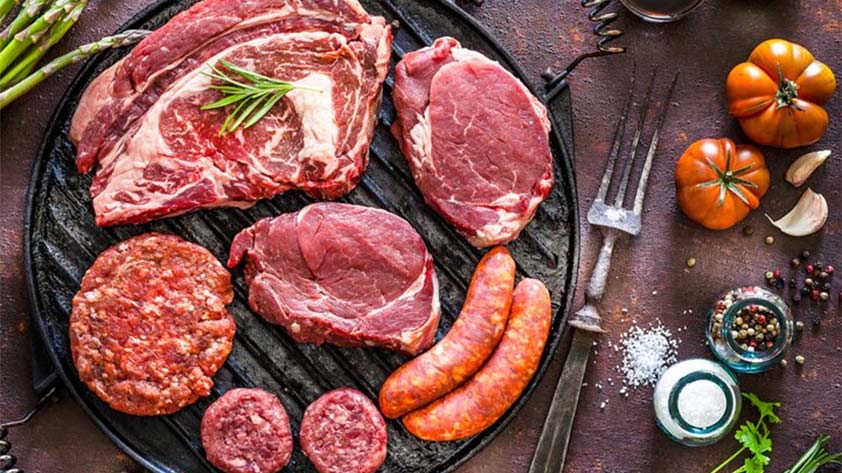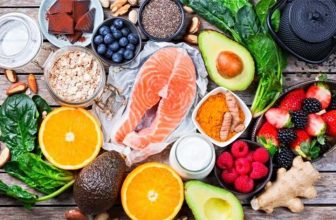
Red meats are meats that are easy to identify, they’re simply red in colour when they are raw. These include beef, lamb, mutton, pork, goat, veal, and venison. These types of meats appear to be red as they are rich in myoglobin (a protein that binds iron and oxygen) and when encountering oxygen, it turns into oxymyoglobin which gives a deep reddish in colour.
A main difference between red and white meat is their myoglobin and haem iron content, which are both higher in red meats. There is a lot of controversy and uncertainty surrounding the topic of red meats, so read on to find out about my personal experience with them in Eating Red Meat — My Experience (Pros & Cons)
Pros
1. Rich source of Haem Iron
There are two types of iron: haem and non-haem (please refer to my previous article on the importance of iron). The former has higher bioavailability (is more easily absorbed by the body) and can even help increase the absorption of non-haem iron.
2. Nutritious
It has a high protein content (28–38g per 100g depending on the meat type and part of the body), and is high in lysine, threonine, and methionine which are said to be insufficient in plant-derived diets.
Protein provides satiety, which helps us to control our appetite. It also contains B vitamins, most importantly dietary B12 which is only available in animal sources. In addition, it is rich in other minerals (e.g. zinc and selenium) as well as vitamins (A, D and K2).
3. Helps Overcome Depression & Anxiety
Certain studies have found that those who abstain from meat may be more likely at risk of depression or anxiety. Some found that the use of prescription medication for depression was almost two times more likely in women who don’t consume meat than those who do. This could be due to the absence or lack of important vitamins and minerals such as B12, D and iron.
Cons
1. Increased Risk of Cancers
Based on several scientific studies, there is a strong link between red meat consumption and cancer (e.g. colorectal, bowel). The exact reason is not confirmed yet, but it may be due to it being potentially carcinogenic to humans. (E.g. it disturbs the vital airs and life currents of the body and also causes the build up of acidity which ferments over time into various sorts of diseases.) However, it is certain that processed meat is carcinogenic because of its processing/preserving steps and cooking methods. It has been recommended that consumption of red meat to be reduced below 50g/day to reduce cancer risk.
2. Other Possible Health Hazards
Aside from cancer, scientific evidence has shown that high consumption of red meat (especially processed meat) can the increase risk of chronic diseases such as type 2 diabetes, cardiovascular disease, and overall bring about an increased mortality risk. Fresh red and processed meats are both high in fat, the latter even more so in sodium, which is detrimental to health if consumed in higher than average amounts over a period of months and years.
3. Environmental Impact
Red meats release 20% more greenhouse gases per serving than white meats. Cattle are responsible for the emission of almost 10% of methane which contributes to climate change. Most of the environmental (chemical) contaminants that meats are exposed to are highly fat soluble meaning that red meats are more susceptible to becoming contaminated.
My Personal Experience with Eating Red Meat
For a few years, I was on a flexitarian diet, having fish a few times a week and limiting my meat consumption.
During that time, my body felt lighter and cleansed, with definitely no bowel movement problems due to the abundant consumption of fruits and vegetables. However, I noticed, I would usually feel fatigue and under the weather often.
Therefore, over lockdown, I decided to adopt a balanced diet, eating most foods in moderation, and eased myself into having more red meats. I became more energised and felt stronger. However, I did feel heavier which may be due to occasional slight overconsumption of meats.
Overall, I feel that complete removal of red meats in my diet wasn’t the best for me, but I will have to make sure that I don’t overeat red meats and ensure an appropriate ratio of meats to fruits and vegetables.
Everyone is different, so you need to find out what works best for your particular constitution. Feel free to try out different combinations of foods to make that assessment. However, do make sure that you work toward a well-planned diet so that you’re consuming a sufficient amount of nutrients.
Do refer back to our articles for more insights (e.g. from NHS doctors at the top of their fields) for diet and nutrition info! Too much of one food or the complete absence of another is probably not ideal for most – so far, I believe moderation and personalisation is key.
Do you think eating red meat is necessary; should we do away with it altogether or does it still offer real value to our health? Let us know in the comments below, and join in the conversation on Facebook, Twitter & Instagram!









